Notes from a Kindred Spirit is a bi-weekly newsletter about embracing curiosity, exploring hobbies, living with chronic illness, and finding contentment in the everyday.
This post contains medical content and musings on mortality. If that feels triggering for you, please come back to this piece later or feel free to skip it altogether.
Hi friends,
Today, November 22, 2024, marks 8 years since my double lung transplant. I have to be honest - I have a hard time celebrating this anniversary.
By the age of 23, Cystic Fibrosis had caused my lung function to deteriorate so much that I had to wear oxygen prongs 24/7. A BiPAP mask became a regular fixture because my body was accumulating too much carbon dioxide. My quality of life was the lowest it had ever been.
Cystic Fibrosis (CF) is a genetic, progressive, chronic illness that affects the lungs, digestive system, and many other organs. There is no cure.
So, in my early twenties, I agreed to be listed for a double lung transplant because, even with its many risks and complications, that was my only option. While a transplant wouldn't cure my CF, it would hopefully give me a second chance at life.
An anniversary that’s hard to celebrate
For the first few years after my transplant, the people closest to me would celebrate the anniversary. My mom would bake a cake, my brother would send flowers. I accepted the gifts and the anniversary wishes because I didn’t want to seem ungrateful.
I am not ungrateful, of course, because I’m still alive and, so far, have lived for 8 more years than I would have. It’s the greatest gift anyone could give.
But it’s also more nuanced than that.
The anniversary of my transplant brings up memories I’d rather not relive. There were multiple instances of medical trauma where no one was held accountable. This led to PTSD symptoms later on which I still go to therapy for.
And now, in medical settings, my anxiety is worse than it ever was pre-transplant. I can’t deny how much that experience changed me. I feel less resilient – weaker – when faced with a medical test or procedure, and I hate that.
But perhaps the biggest reason that it is difficult to celebrate this anniversary is because someone had to die in order for me to have this transplant. Someone who had friends and family who loved them. Someone with hopes and dreams for their future. Someone whose life was unexpectedly and unfairly cut short.
I have to make myself sit with that knowledge because it’s uncomfortable and I’d rather push it away. But it’s important, and I don’t ever want to forget or take it for granted.
My donor is the reason I am here, living and breathing. Their lungs enabled me to get married, bring our dog home, move to an island on the west coast, buy a house with an ocean view, and so much more.
I can never express enough gratitude to make this feel fair because it’s not.
Racing against an invisible clock
Before I reached adulthood, I knew my lifespan would likely be shorter than the average person’s. This is the reality of living with an incurable chronic illness.
As I grew up, I began to feel like I was racing against an invisible clock. I had no idea when my lungs would fail and my luck would run out.
I made it my goal to graduate from high school before I needed a transplant. Then, I wanted to finish a university degree before being listed. But really, what I wanted to do was finish high school, finish my post-secondary education, start my career and settle down somewhere (i.e. start living my life!) before the life-altering interruption that was transplant came calling.
It was always there, hanging over my future, counting down. I had no control over it.
So, everything became rushed. My impatience to graduate during my last year of high school pulsed through everything I did. I just wanted to get on with it! After I graduated, I moved to the nearest city to start working on my four-year degree and I had already decided which program I would apply to after finishing it.
I signed myself up for a full course load (not pausing to consider the full-time job I had taking care of my health on my own) and immediately resented the requirements for my degree. Why was I being forced to take all of these general classes with their various projects, papers, and exams, that had nothing to do with the future career I wanted?
I was wasting my time and I couldn’t bear it. During the Christmas break, I confessed to my parents that I hated university.
A couple of years later, I was accepted into a film degree program at a university farther from home. At first, I loved it. The experience was so much better than before. But soon, the ticking of the invisible clock got louder. The further I got into my twenties, the more my health declined.
I began to wonder what the point of getting a degree in film was. Do people in that industry even care if you have a university education? Maybe I would be better off leaving school and looking for an entry-level job on a film set. Really get the ball rolling on my career instead of wasting time on an education that may not get me further ahead. So, 2 months into my second year of the program, I packed up my apartment and my mom took me back home.
I never did finish a degree or any post-secondary education. My health continued to get worse and then I was listed for transplant.
Making up for lost time
My transplant took place in a city 7 hours from home. I was airlifted to the hospital there in September and didn’t return home until February. It felt like a lifetime.
When I did get home, I felt so much pressure to make up for lost time. I had been sick long before September, and months of my life had been spent in the hospital and recovery. This was unacceptable to me.
Looking back, I also recognize that I was running away from processing everything that had happened and all the complicated emotions that had sprung up. I was doing the best I could with the tools I had at the time.
And honestly, I don’t think I know how to slow down. There is always urgency. Yes, the transplant is over, but there will forever be the risk of rejection. I’m living with lungs I was not born with and that is not without its complications. I’m currently dealing with my second bout of a post-transplant type of lymphoma. This is borrowed time. In that way, it’s no different than it was before the transplant.
Choose the bigger life
I have spent my entire life racing against the clock that is my mortality, and while I wouldn't wish that on anyone, there is a valuable lesson to be learned from living with this ticking time bomb.
This lifetime? This is it.
I know that's scary to think about, and reading it probably made you feel that queasy, nervous sensation in the pit of your stomach. I get it. I've been thinking about my mortality from a much younger age than the average person.
When mulling over philosophical topics like this, I often reflect on Gretchen Rubin’s quote: “Choose the bigger life.”
So, consider this a gentle invitation to think about what this means for you.
How are you spending your time? What or who is most important to you?
Some advice for us all (myself included)
Accept that you will never get it all done. Stop putting off the things that matter for some distant point in the future when you believe things will be better/more organized/less stressful than they are now.
You don’t need to optimize your entire life. You don’t need another productivity hack to help you get more done because there will always be more to do.
You will never “catch up” and check everything off on your to-do list, and that’s okay! Give yourself permission to take the pressure off.
It's impossible to “do it all” so decide what you really want to do.
Choose your bigger life.
And, now that I think about it, maybe this is how I celebrate the anniversary and honour my donor. By holding onto this lesson, but letting go of the urgency. By releasing myself from the pressure to do it all. And, by using the knowledge of my finitude to guide me in the choices I make every day.
This will be a work in progress, but I’m committed.
Are you?
P.S.
Please consider becoming an organ and tissue donor if you haven’t already and be sure to inform your loved ones of your choice.
In Canada, visit this site to find out how to register in your province.
If you’re in the United States, go here.
If you’re in the UK, find out more here.
Lastly, if you feel called to donate to support the Canadian Donation and Transplantation Research Program, you can find them here.
You can also make a donation to support Cystic Fibrosis research in Canada, the US, and the UK.
P.P.S.
Many of the thoughts I share in this piece were inspired by Oliver Burkeman’s book, Four Thousand Weeks. I highly recommend it for exploring these ideas further!





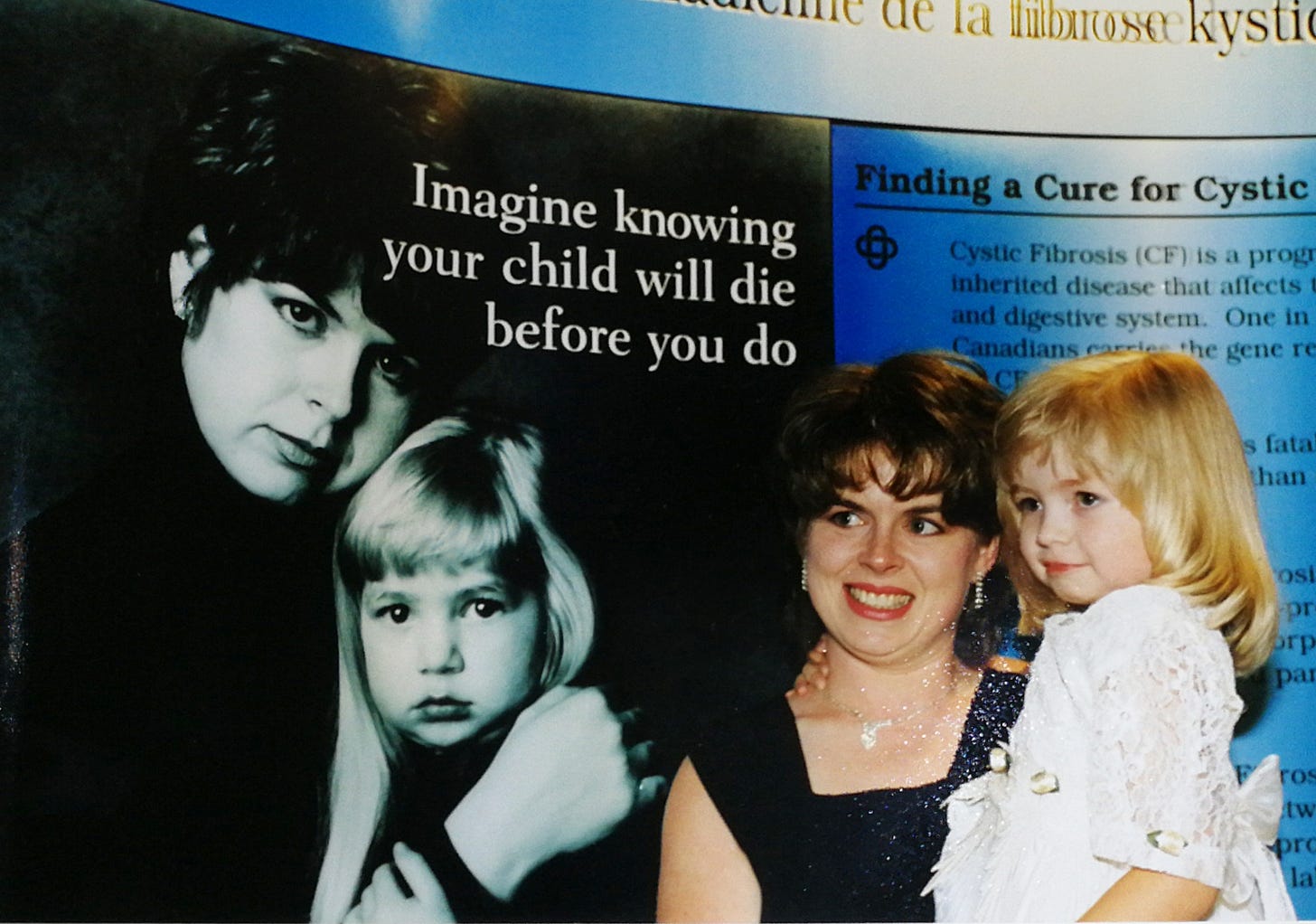
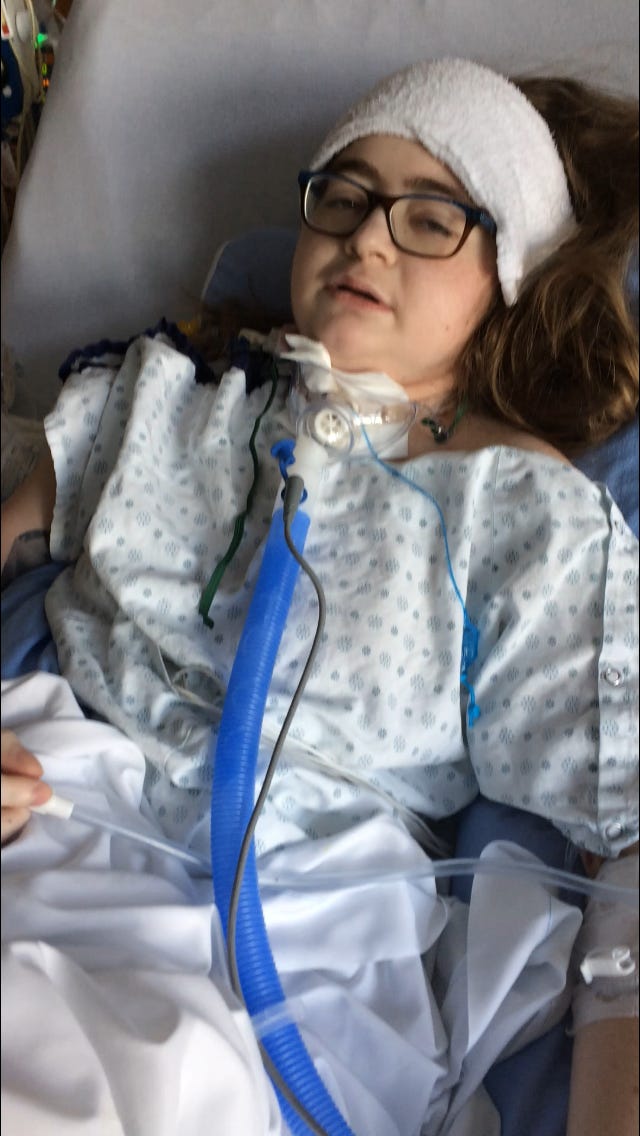
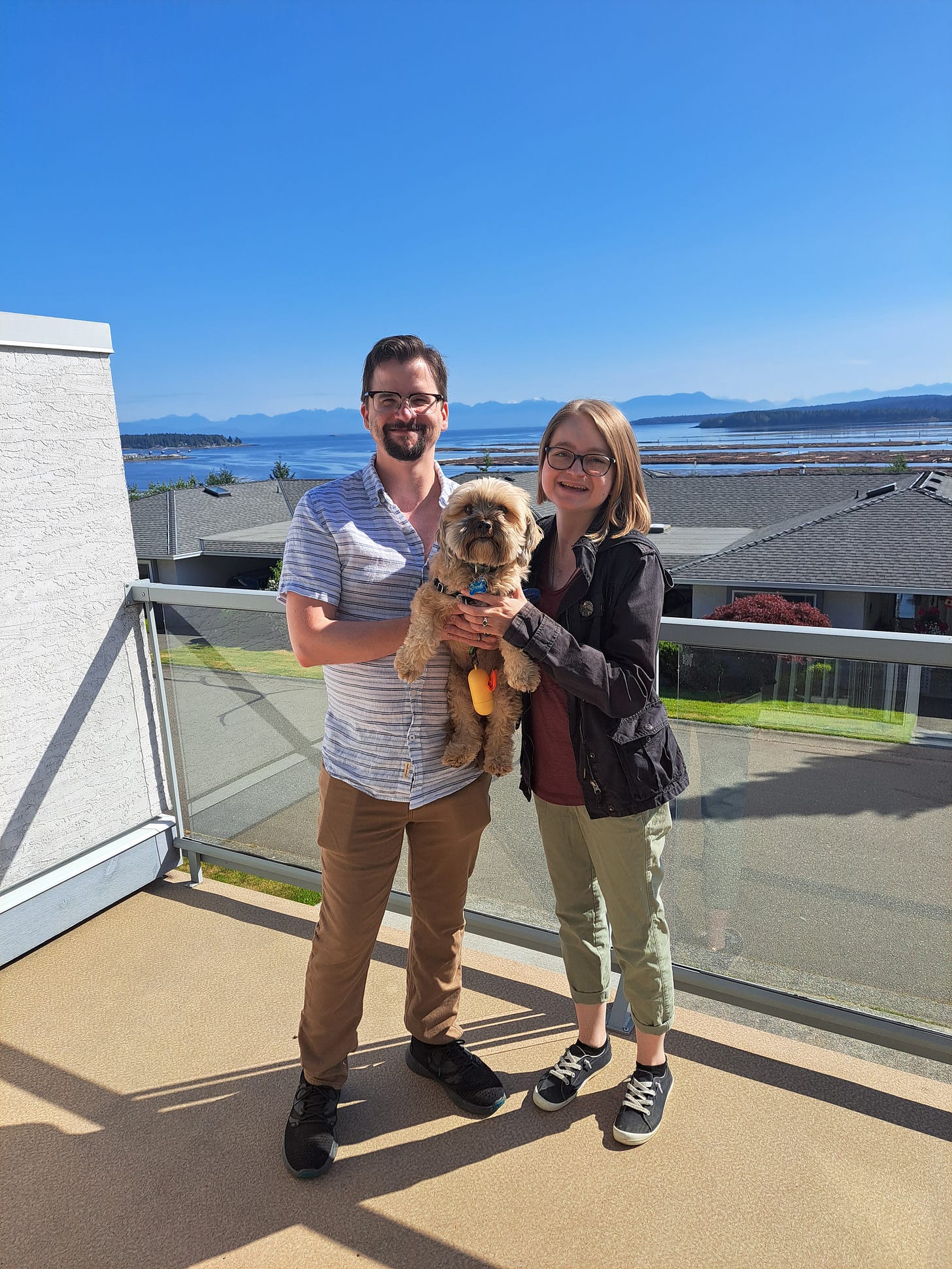

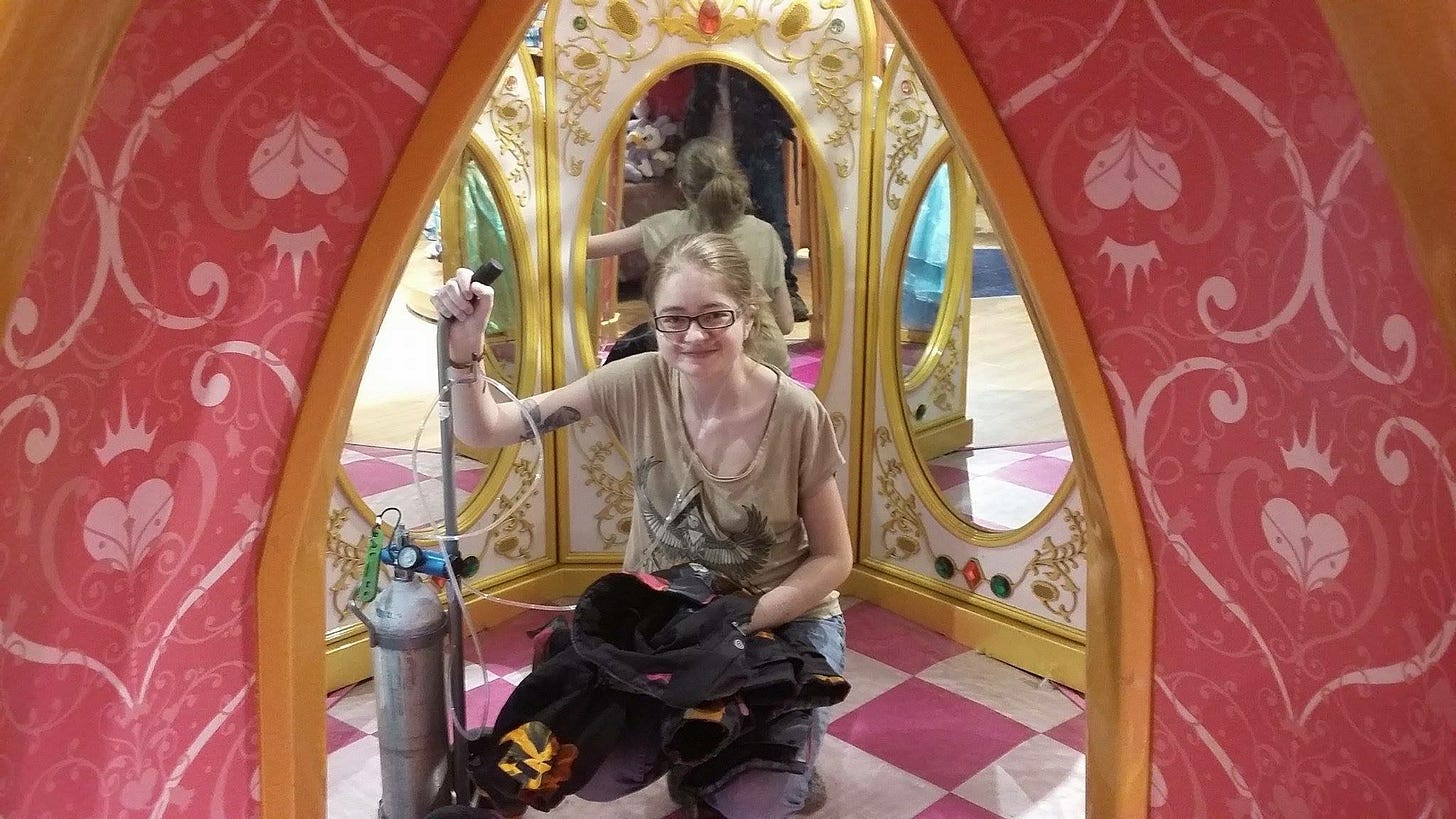
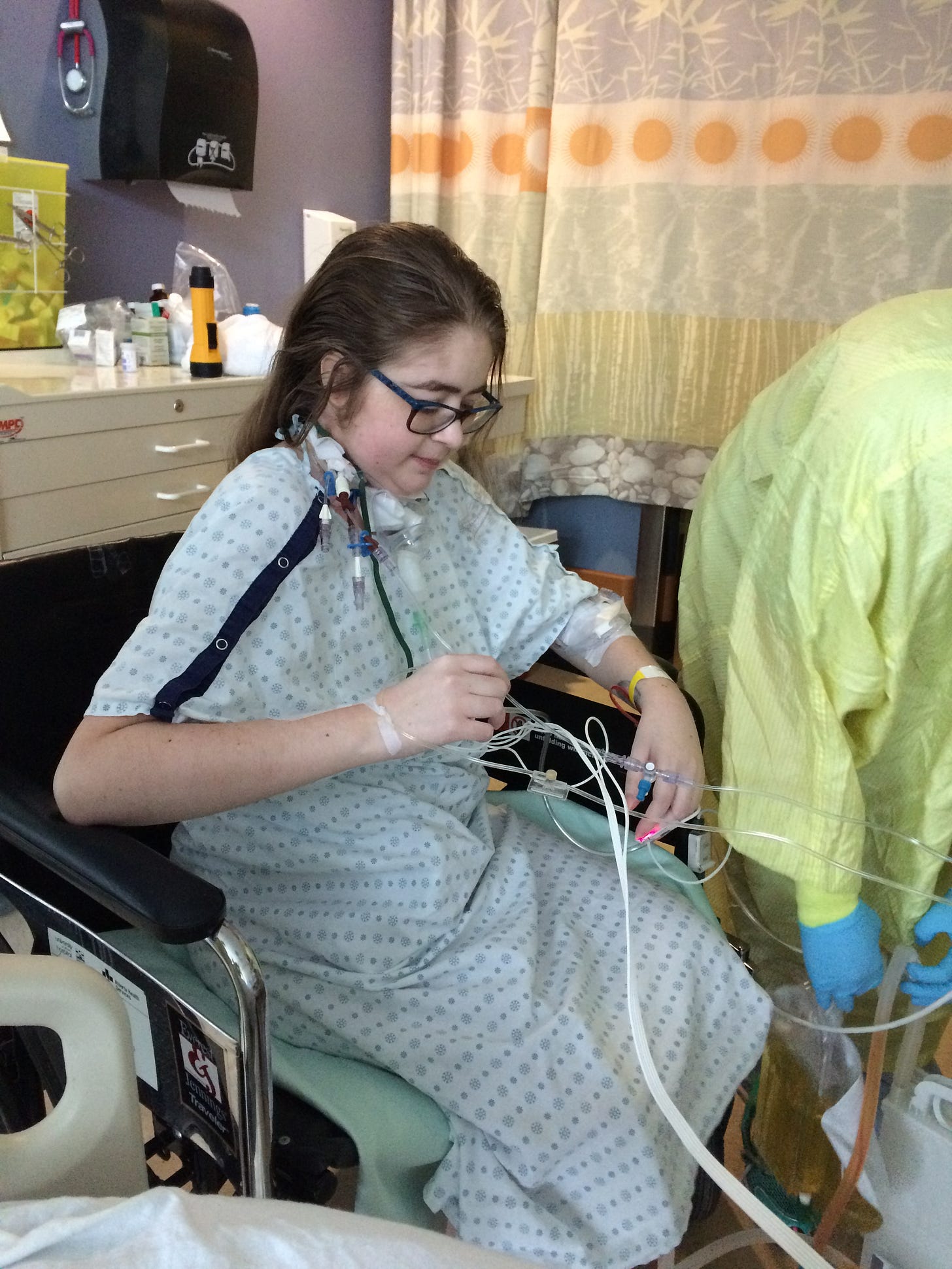
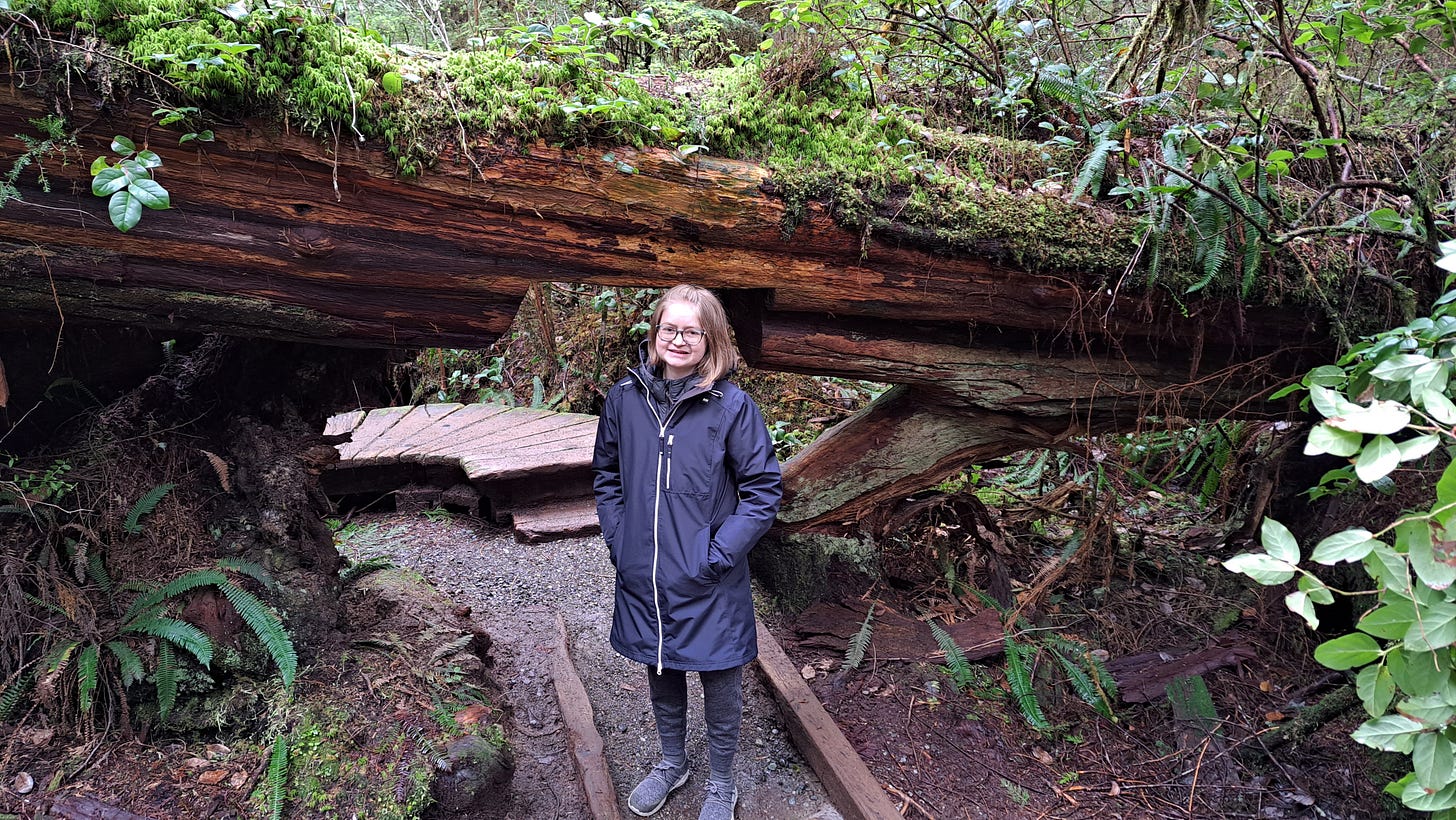

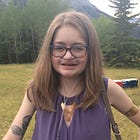

Thank you for your post. It's rare for me to read someone else's words that express my own feelings. I was born with a congenital heart defect, and my mother was told that I would be dead by the age of 30. I spent my early years racing against an invisible clock. I ended up getting a heart transplant in January of 2006. That allowed me to return to the life I loved. I spent 11 years working and raising two stepsons with my husband. Then that heart failed, and I was lucky enough to receive a second heart transplant in October 2018. This time around, I feel the ticking of the clock so much louder because I know how easy it is to lose my gifted heart.
Because of my two wonderful donors, I've gotten to live much longer than I otherwise would have, and I've experienced so many joys I would never have known. Every day, I'm grateful to be here, to be alive.
Cass - what a beautifully written, profound rumination on your life and transplant experience. I will reread and sit with this wisdom today and going forward. A thousand thanks for sharing this very personal piece of writing. Glorie Tebbutt